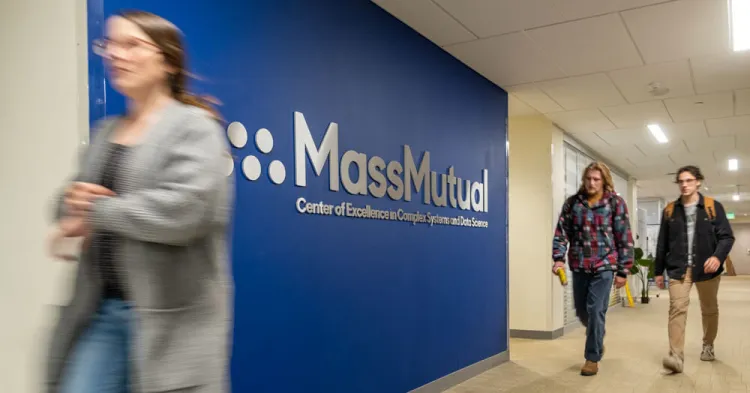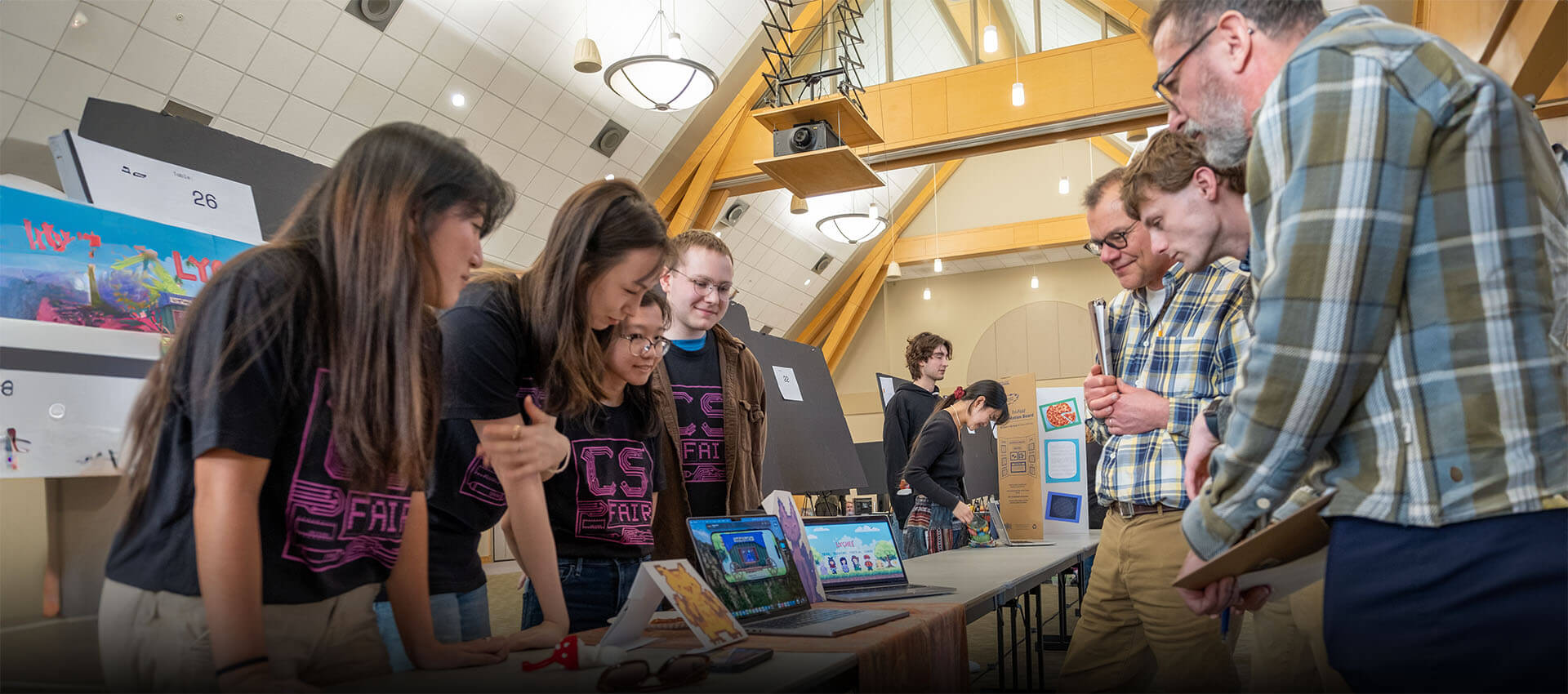Curriculum
MS in Computer Science Pathways

Thesis Option
Students choosing the thesis option must complete a minimum of 30 credit hours, including a minimum of 21 credits of coursework and 6 credits of thesis research.
A Master's thesis consists of original research work done under the guidance of a faculty member. Students opting to pursue a thesis must select a thesis advisor who agrees to supervise that student's thesis work. The thesis advisor may be any graduate faculty member who holds either a primary or a secondary appointment from the Department.
Full-time students should normally choose a thesis advisor by the end of their first semester. Prior to the selection of a thesis advisor, a member of the Graduate Committee serves as the student's advisor (see the Director of Graduate Studies for details).
Each thesis student must write a thesis describing their research. The thesis is presented before a thesis committee in a public oral thesis defense. The thesis committee must include three different individuals: (1) the student's thesis advisor (see below), (2) another graduate faculty member of the department, and (3) the chair of the thesis committee. The chair of the thesis committee must be a member of the graduate faculty without an appointment (either primary or secondary) in the department.
At least three weeks before the defense, the written thesis must be submitted to the Graduate College for a format check. At least two weeks before the defense, the student must make copies of the written thesis available to all members of the thesis committee. The thesis defense itself must be adequately advertised to the community.
Project Option
Students choosing the project option must complete a minimum of 30 credit hours, including a minimum of 24 credits of coursework and 3 credits of project (CS 6392).
A graduate project typically consists of a significant implementation done under the guidance of a faculty member. Students opting to pursue a project must select an advisor who agrees to supervise that student's work. The advisor may be any faculty member who holds either a primary or a secondary appointment from the Department.
Full-time students should normally choose a project advisor by the end of their first semester. Prior to the selection of an advisor, a member of the Graduate Committee serves as the student's advisor (see the Director of Graduate Studies for details).
The results of the project are presented before a project committee in a public talk, which has been advertised to the community. The project committee must include three individuals, at least two of whom must hold appointments in the department. The chair, who may be the project advisor, must be a member of the Graduate College and hold an appointment in the department. The composition of the committee must be approved by the Graduate Committee.
One bound copy of the project report should be submitted to the Graduate Program Director within 30 days after the defense. The submitted copy will be archived in the departmental file.
Documents needed to complete a project defense comprise the project report, acceptance page, and the exam result. Templates of these documents can be downloaded from the following links: Project report front sample (PDF), Project acceptance page template (DOC), Project examination result form (DOC).
Coursework Option
Students choosing a coursework option must complete a minimum of 30 credit hours of coursework.
The Department offers 5000-level courses, which are taken both by advanced undergraduate students for graduate credit and by graduate students. The Department also offers 6000-level courses, which are open only to graduate students.
Students in all options must:
- Take 4 other core Computer Science Courses, to be determined in consultation with and approval of the student’s graduate advisor and the CS graduate coordinator, depending on the student’s background and interests.
- Pass comprehensive exams covering material from the 4 approved core courses.
- Fulfill the credit requirement with approved graduate-level course work in computer science or related areas. (Only courses with grades of B- or above are counted towards course work requirements and students with 2 grades below B are eligible for dismissal.)
Comprehensive Exams: For the course-based Master's, receiving a grade of A- or better in all courses constitutes successfully completing the comprehensive examination. Students who receive a grade of B+ or lower in any of their courses must pass a written and/or oral comprehensive exam. Thesis or project students must demonstrate mastery of the material by one of three possible routes: an oral exam, a paper, or a code portfolio. The exact format will be decided upon by the Student's Studies Committee (their Project/Thesis advisor and the CS Graduate Program Director) in consultation with the student. For Thesis students, the written Thesis and oral defense can serve as the required paper or oral exam. For Project students, final project code and any associated public presentation can serve as the required code portfolio or oral exam.
Credit Transfer
With the approval of the Graduate Committee, up to 9 credit hours of coursework in Computer Science (or a closely related field) may be transferred into the Master's degree. Only credits that have not been used for other degrees (Bachelor's, Master's, or others) are considered. Note that these credits include any courses taken at UVM before enrolling in the Master's program and any courses taken at other institutions, whether before or after enrolling at UVM. In addition, with the approval of the Graduate Committee, a student may apply courses in a closely related field taken at the graduate level while in residence at UVM to their Master's requirements.
Note that transfer and waiver are two different, independent concepts. A transfer means that the transferred credits are counted towards your Master's degree at UVM, while a waiver only means that one of the five required courses is replaced by some other courses (possibly transferred ones).
Also, please note that the Accelerated Master's Program (AMP) (see below) is an exception to this 9-credit-transfer rule.
Computer Science Graduate Course Listing







